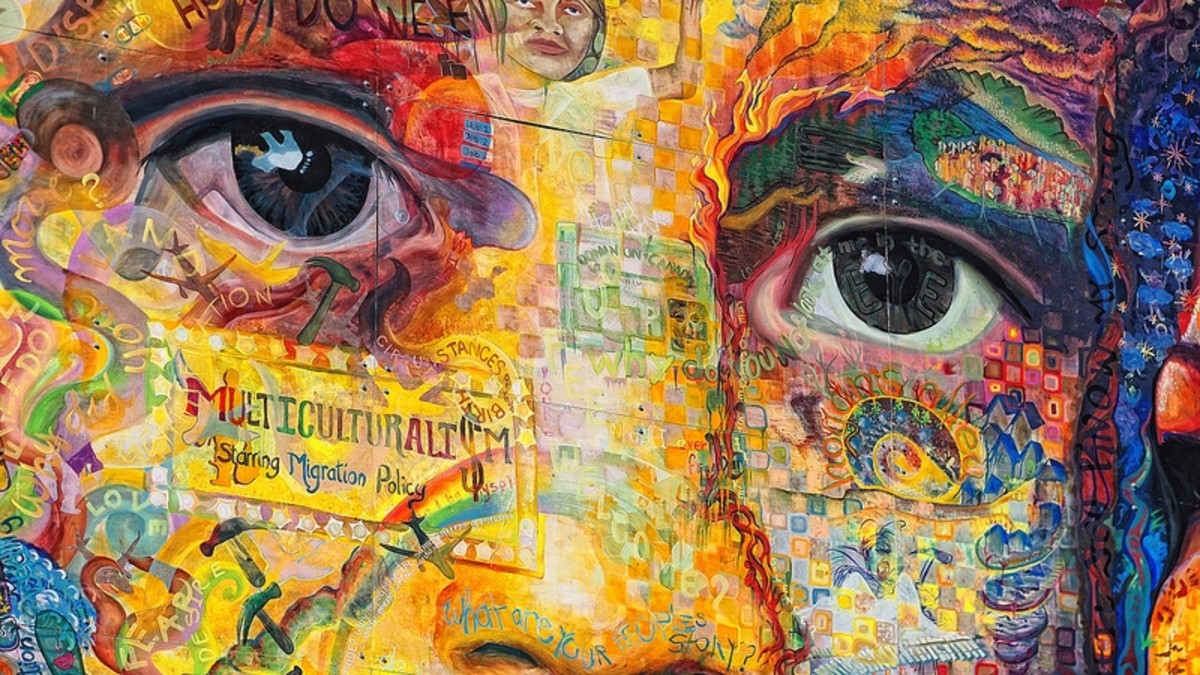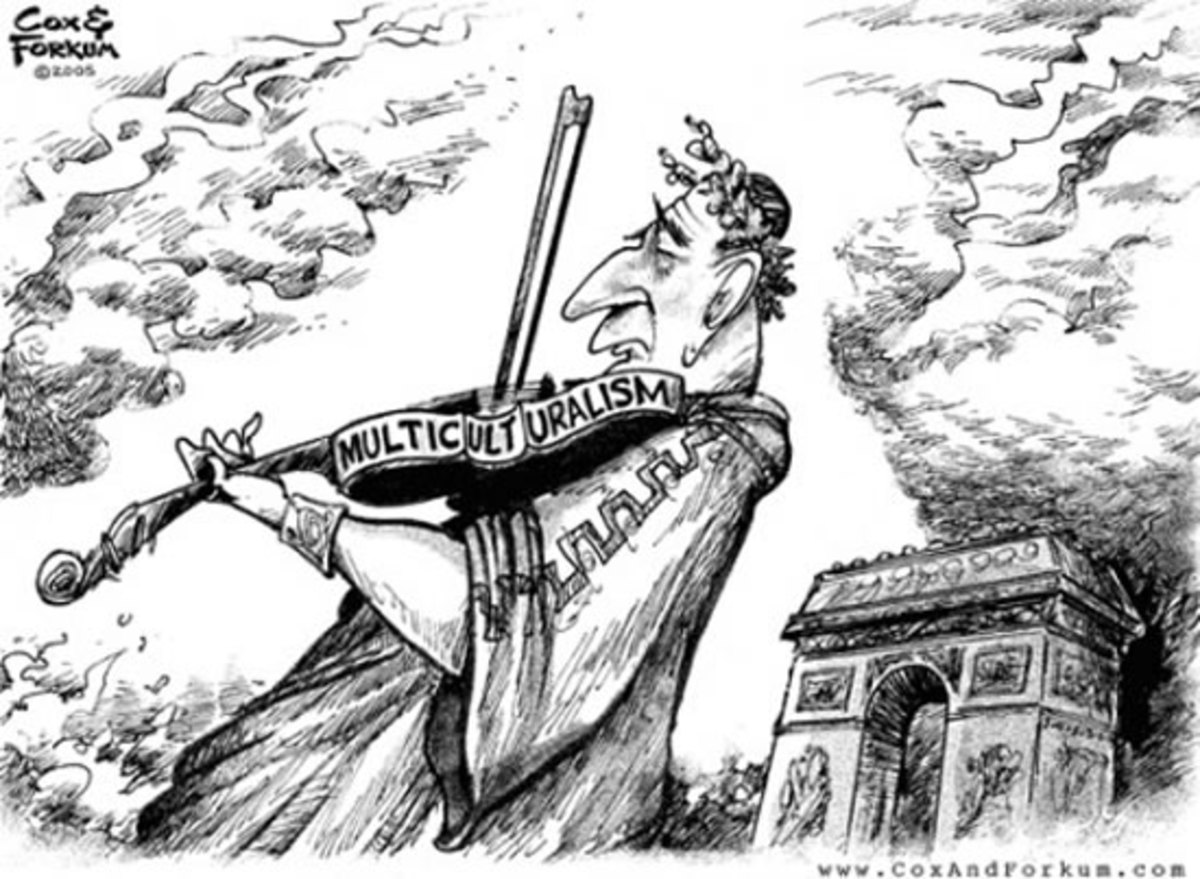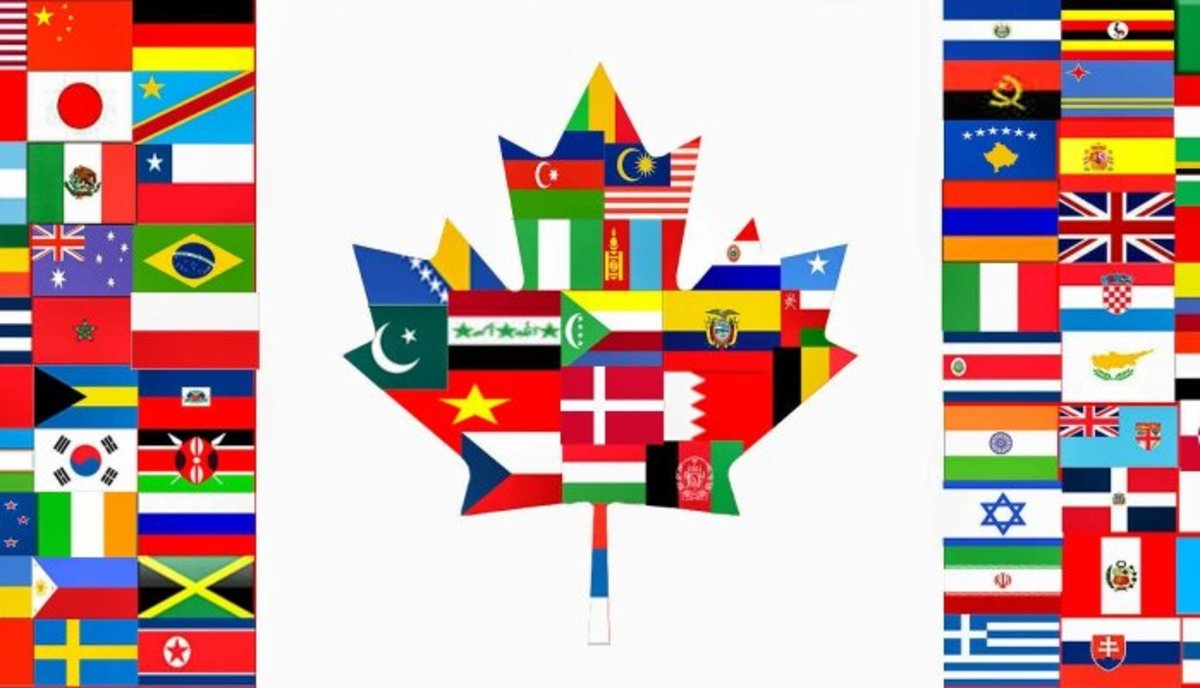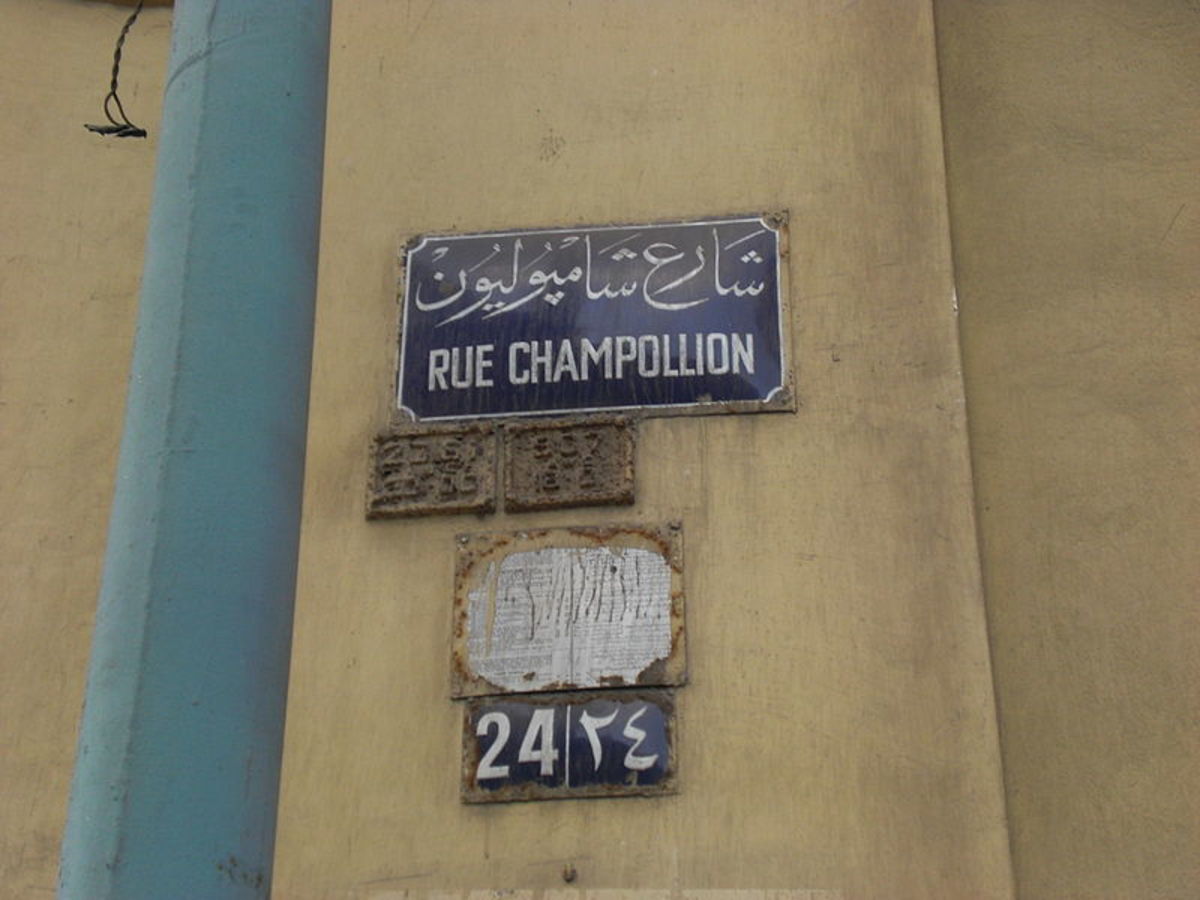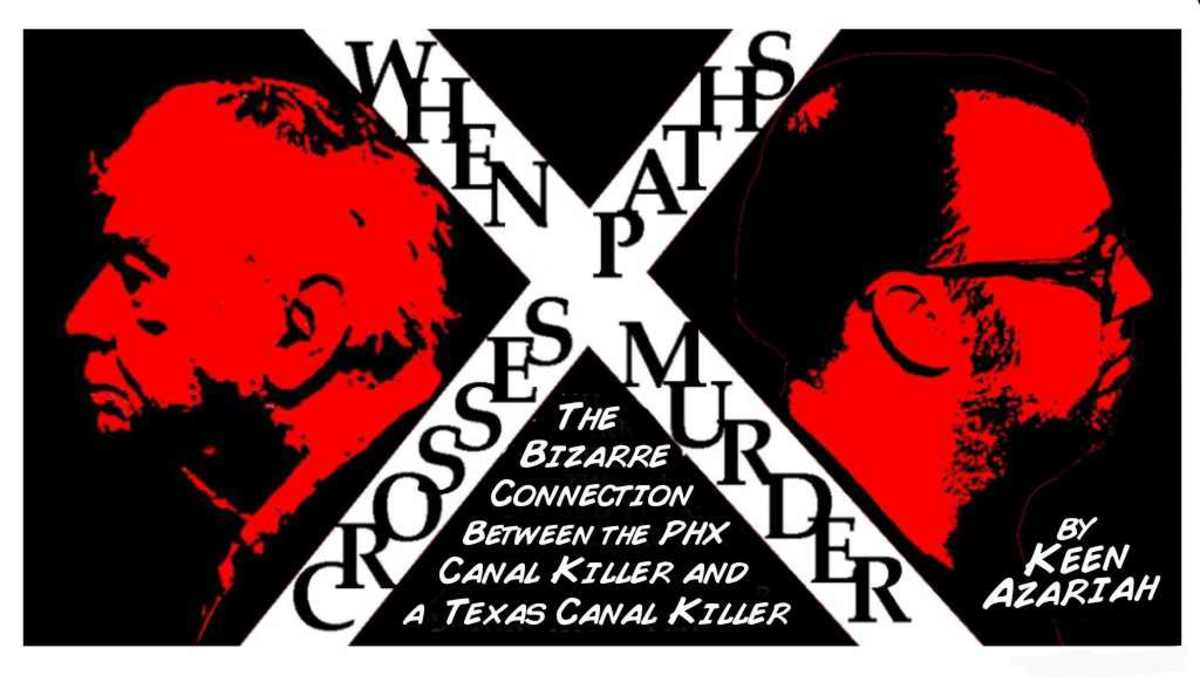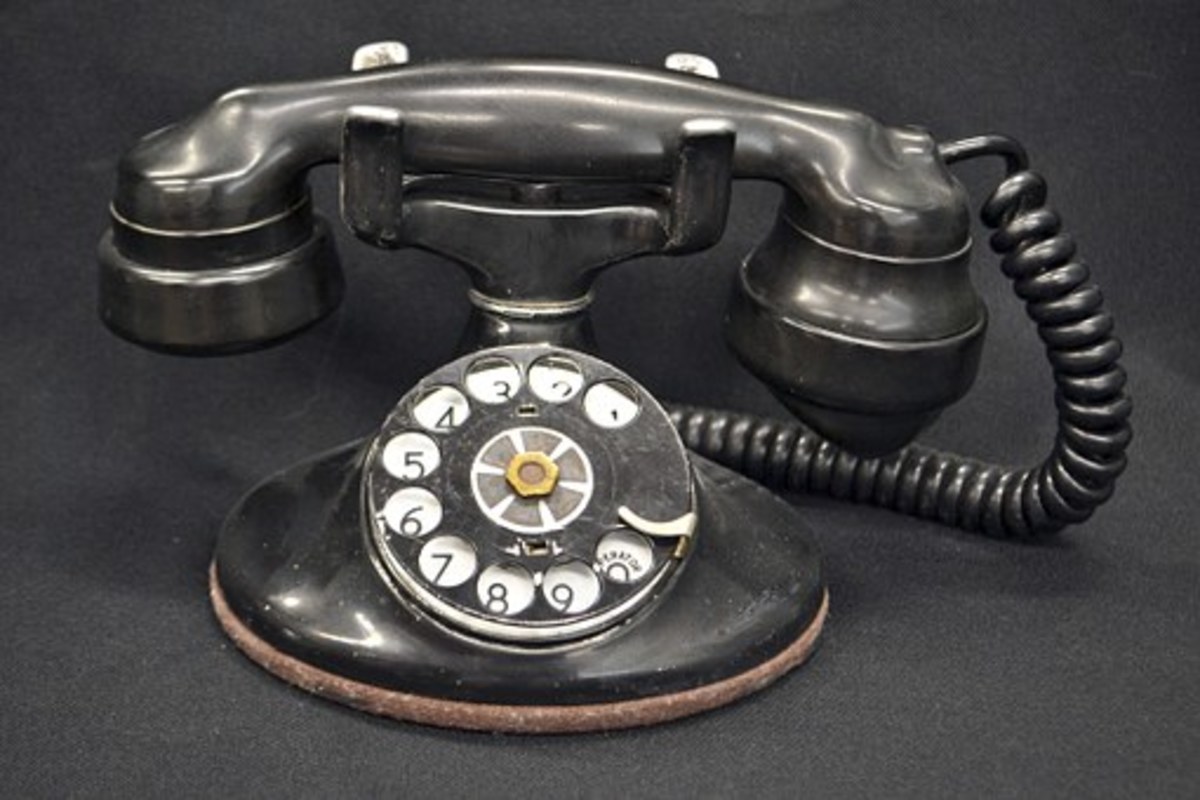What is Multiculturalism
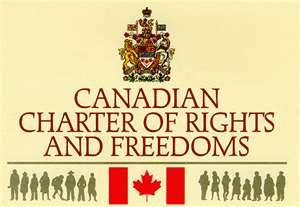
Multiculturalism has never been fully accepted as a good thing by many. In the USA the ideal has always been a melting pot where all that come to American shores to make a new home leave their old life and culture behind and embrace the American way and the American culture.
Canada on the other hand, has tried the idea of multiculturalism, where instead of melting immigrants into the society, the society moulds itself to accommodate many cultures. That means that we have a policy of accepting and even celebrating all our diversity of cultures. But of course, we also expect immigrants to do the same. We expect them to embrace other cultures as well as to embrace the overall culture of the country they have come to for a new life.
Both models have their problems and their advantages. After all, if you go to a country to immigrate, you should expect to learn the language and how the culture works. People do not often immigrate to countries they don’t like. Unless you are a refuge or otherwise find yourself somewhere due to your work, etc, you usually already like or admire the culture you are adopting. So the melting pot idea should be something you expect.
Truth be told, the melting pot idea is part of most country’s culture. It’s just natural. You go to another country expecting to conform to that country’s rules and culture. If you are a woman it would be madness to believe you could immigrate to a Muslim country and expect the freedom you have in the US or Canada. As the wise old adage and bit of good advice goes: When in Rome you are expected to do what the Romans do.
So where does the idea of multiculturalism come from? Some conservatives seem to believe that the Canadian version was created by the liberals under Trudeau. But that is not the case at all. The idea of multiculturalism started with the British North America Act, Canada’s first constitution and still the basis of our current one.
It bound two very different cultures together, the French and the English. The French were here before the British and started to colonize what is now Quebec. When the English arrived England and France were already at war and had been on and off for several hundred years. So it was not surprising that war broke out here as well.
When France finally lost the war in 1759 then abandoned the French settlers in 1763 by giving up all assets in the New World to England (save Louisiana which was given to Spain) in the treaty of Paris, the English soon subjugated the settlers. Even before they had won the war with France several hundred French settlers were deported. Deportation consisted of loading them into ships and dropping them off along the Eastern coast of what would become the US.
But after the war instead of the French being considered a conquered people, The Quebec Act of 1774gave the French territory and their own legislature and gave them religious freedom as well as the right to use French Common law. It was an act that really upset the 13 colonies in the south, and was one of the many factors that led to the 13 colony’s revolt in 1776. But it was designed to keep the peace between the French and the English in the Canadian colonies. Better to appease the French by giving them the freedoms they wanted, while still keeping them under British rule, than to be constantly putting down rebellions.
When Canada became the United Province of Canada in was jointly ruled by Sir John A McDonald and George-Étienne Cartier from 1857 to 1862. Both men fought together for the confederation of Canada, and finally won that dream in 1867 with Sir John A becoming our first Prime minister. Even the capital city: Ottawa, was chosen by Queen Victory because it was right between Montreal and Toronto, on the border with Quebec. It was middle ground.
So from the very beginning of Canada it was designed as a duel culture country. The United States often refers to itself as the great experiment, but that is just what Canada was as well, and still is.
The BNA act has been modified at least a dozen times during these many years since the first act. The last time it was modified was in 1986 when Canada repatriated its constitution, and became completely independent of the British parliament. It is here that Prime Minister Trudeau comes in to the picture.
When he gave us our own constitution he also gave us a Charter of Rights and Freedoms which mandates multiculturalism. Not only between French/English culture, but it extends that idea to people from every culture that comes to make this their home.
In the time of Elizabeth the first there was another grand experiment under way. While she did not have to deal with different cultures, she had to deal with different forms of Protestantism: the Puritans, the Presbyterians, Scottish Calvinists, etc. Europe was at war along religious lines, not only between the Protestants and the Catholics, but between all the factions of Protestantism that had splintered away from Luther’s original ideals.
Most of them wanted all of Europe to convert to their particular form of Christianity, or face the fire. Since the reformation the blood on the hands of Protestantism rivalled that of the Catholic church.
Henry the 8th had slit England from the Pope several years earlier so he could divorce his then wife of 7 years because she could not give him an heir. He also had himself appointed as head of the Church in England through a devise known as the Royal Supremacy. But Henry had not done a lot with it other than get his divorce.
After 6 wives he had one male heir and two female heirs. Elizabeth the first was the middle child, and due her brother dying young and her older sister dying without producing a child, she was named queen.
She needed to unite England under one religion again, in order to avoid more bloodshed. So she created the Church of England, which had many of the ceremonies of the Catholic Church while blending a lot of the philosophical positions of the Protestants.
Though it didn’t completely stop all the religious violence in her country, it did minimize it.
When you have many different factions in a country there are two ways to deal with it. The first and most traditional way is to take sides and outlaw all factions but the one you belong to. But that often means war or uprising. It also means persecution. Another way is to not take sides and do something like Elizabeth did; create something new that no one is really happy about but few hate enough to kill for its demise.
The other way is like early Rome did: tolerance for all the factions, but that comes with the demand that all the factions agree to be tolerant of each other. And that is what Multiculturalism attempts to do. But it does more than that. It promotes the idea of ethnic diversity. It promotes the idea that people should not shut themselves away in small groups, but that they should learn about each other and celebrate each other’s differences. It promotes the idea no individual faction’s cultural ideas or beliefs is central in government policies, but rather that all beliefs have their place in society and are protected by law. Well all beliefs that are within the law, of course.
Lofty ideals to say the least, and by no means perfected. After all, one of the things many cultures like to preserve is their unique culture. That is why we see so many cities divided into cultural groups. How many towns have a “Little Italy, or China Town?” Quebec is a perfect example of this fear of being assimilated unless language and traditions are protected under law. Not everyone wants to be multicultural.
Life is so much easier when the country you live in shares one culture, one religion, one language, and one general ethnic appearance. But those days are long gone for just about every nation in the world. The diversity is already too long out of the bag, so to speak. No one can put it back in without resorting to intolerance at best and ethnic cleansing and genocide at worst.
Humanity knows it is better than that. At least I hope it is.
Most Western countries have already institutionalized tolerance in some way or other. But to do it effectively one has to do it by not taking sides. That usually means protecting religious freedoms. And of course the only way to do that is by separating church and state. Most religions want this separation because it ensures their religious freedoms within their groups.
But if you have a separation of church and state, the politicians running this have to leave their religion at home and participate as a-religiously as possible. This does not mean one cannot vote his or her conscience, which may well be influenced by their religious belief. Rather it means they have to create legislation which is fair to all of the diversity of their charge.
But how does one make sure politicians do exactly that? By mandating it in the constitution. And that is what Pierre Trudeau did when he gave us the Charter of Rights and Freedoms. Legislators have to abide by the Charter, from the personal to the municipal to provincial, to the federal level. All of us are mandated to act and legislate, keeping in mind and following the Charter.
The end result is that Canada is a civil rights based society. Meaning that it is, in many ways, one of the freest societies in the world. Love multiculturalism or hate it, it is that which gives the best hope for peace and understanding. It is also the best hope for individual security and individual freedom. All it requires is that everyone understands that that the freedom they have is bought by the freedom they allow others. No one then has a right to take that freedom from another.
Separation of church and state was meant to give religions freedom to rule themselves without state interference. But institutionalized it evolved in to protecting religions from each other. It has also come to mean that no religion has the right to interfere with matters of state. And lastly it has come to mean the protection from religion for the atheist.
Multiculturalism is an extension of that idea. It means the protection of all cultures from each other, and the freedom of all cultures to express themselves as they like, within the law of the land. Government does not make laws to take away those personal freedoms or beliefs, but neither does any particular culture rule all the others.
This does have its problems. It is not always an easy tight rope to walk. All over the Western world there is debate over the way others dress. The veil some Muslim woman wear, for example. Can they walk in to a bank with it on? Can they vote while hiding their face? Can they give testimony in a court of law? Can a Hindu ware a ceremonial knife to school? Can he ware a turban as a member of the police force? In many countries the answer is no. In Canada the answer is yes. But these are by far not the only issues.
Does multiculturalism cause problems in Canada? Yes. Does it mean the end to the traditional English speaking Protestant/French Catholic flavour of the nation? Probably in time. But as long as our constitution is not altered there will be a unity in the diversity and a new stronger identity for Canada.
That is what happened in England many years ago. When the Angles and Saxons invaded the island they caused havoc. But the fact that they chose their kings and that their kings were answerable to the people, moulded British history. Long after the Angles and Saxons were no longer the rulers of the kingdom or even the majority of the population, their form of democracy lived on even though it was threatened time and time again. And it lives with us to this very day. One of the demands of Anglo Saxon England was: No taxation without representation.
That demand is often cited as one of the reasons for the American Revolution. Isn’t it a reasonable demand?
I think that given the choice it would seem to be a reasonable demand by almost any culture. Government by consent rather than by force. I think some ideas can be accepted and celebrated by almost all cultures and all people. Certainly by the people that immigrate to Canada. Otherwise why come here at all?
Yes, even in a multicultural society we expect people to conform to certain ideas, like multiculturalism itself, and tolerance for others beliefs and ways of doing things. So at times it seems like things are too PC, and by doing so, we step on people’s toes anyway. A perfect example is Christmas. Businesses tell their employees now that they should say happy holidays rather than merry Christmas so as not to offend those who do not celebrate Christmas.
I’m an atheist and even to me that idea is absurd in the extreme. Why should anyone be offended by being wished a merry Christmas even if they do not believe in Christianity? On the contrary, the idea of celebrating other cultures means we should say merry Christmas, and people of other faiths should be happy to be included, and willing to learn what that means if they don’t already. They can also ignore it or say happy Ramadan if they like. That’s what multiculturalism should promote. The culture of the still majority does not have to be hidden. In fact, that is taking away the rights we already have to give rights to others. That is not constitutional. The Canadian constitution specifically tells us no law can be made that removes existing rights in order to give new rights to other groups. Rights must be granted evenly and apply to all. Should our collective attitudes not reflect that ideal as well?
So there is a lot of work to be done. A lot to be sorted out. But we will evolve, and this great experiment will evolve. Where it will go, who can tell? But for all its upheaval and all its short falls, to me it is the best hope we have for the future.


